Stress
Our brain decides what is a stressor— whether it is real or not! To the brain there is no difference between actually being chased by a bear and vividly imagining being chased. The brain’s response to stress, called Fight or Flight, is virtually the same.
Network Chiropractic is a well documented way of reducing stress, pain and having you live a healthy vibrant life.
Fight or Flight
Stressors trigger the nervous system to produce hormones to respond to the perceived danger. Specifically, the adrenal glands produce more adrenaline and cortisol, releasing them into the bloodstream. This speeds up heart and breathing rates, and increases blood pressure and metabolism. There is an increase in oxygen demand, glucose demand, and muscle activity. It turns off digestion, shuts off the immune system, and general healing and repair functions stop. These changes help us to react quickly and effectively under pressure.
This is known as the “stress response,” or more commonly, as the “fight or flight response.” It is a vital response to our survival as it re-establishes the body’s balance and equilibrium.
But if low levels of stress(daily living) go on too long, it can be just as detrimental to one’s health. A nervous system remaining slightly activated continues to pump out extra stress hormones over an extended period, leaving the person feeling exhausted or overwhelmed, accelerating aging, and weakening the body’s immune system. Current medical research states that 95% of all diseases/illnesses are caused by stress. The other 5% are considered to be genetic in nature.
Comprehensive Stress Management, by Jerrold S. Greenberg, 1990
Stressor
Is a challenge to homeostasis/allostasis. It is:
“A state of bodily or mental tension resulting from factors that tend to alter an existent equilibrium.”
– Merriam-Webster’s Medical Dictionary
Factors
- Physical Threat: From subtle (job posture) to serious (motor vehicle accident);
- Emotional Anxiety & Worry: Whether real or imagined. Can be conscious or unconscious. Creates sense of lack of control leading to depression and sadness;
- Electromagnetic Frequencies: Radio, TV, computers, and cell phones, all disrupt the electromagnetic frequency of cellular activity. Is a form of physical threat;
- Environmental Toxins: Chemicals such as herbicides, and pesticides. Also food preservatives, paints, drugs, alcohol, and radon;
- Abnormal Neurological Patterns: Established from previous stressors which never normalized;
- Media: Internet, television, radio, and news that is of negative content. Children are greatest at risk setting them up for increased rates of depression and sadness.
Balanced or Unbalanced Nervous System
According to Cell Biologist at Stanford Research, scientist Dr. Bruce Lipton, PhD, the body can defend itself (Fight or Flight) or growth/repair (Heal) but it cannot do both at the same time. The defence fight or flight response has a Beta brainwave frequency associated with a state of high arousal design for crisis management of short duration only. The growth/repair has an Alpha/Theta/Delta brainwave frequency found in a balanced nervous system. A balanced nervous system can move freely through response frequencies as the environment demands. Cells can only maintain one state at a time and these states are controlled by the nervous system.
Dr. Lipton further indicates the nervous system is dangerously stressed when it can no longer move freely between brainwave frequencies. It becomes stuck in a frequency. The brainwaves are no longer able to adapt to an increase in stress, or worse, cannot return to a balanced state. The neurophysiology of the body is out of balance.
Researchers at Johns Hopkins University in Baltimore looking at heart disease discovered mental stress reaction was a better indicator of heart risk than factors such as smoking, having high cholesterol or diabetes. People with high blood pressure response to mental stress were six times more likely to have a heart attack. Summing up the challenges, the researchers said, “How do you learn to manage something when you don’t know you have it?” stating, “There was no relationship between people’s perception of stress and their actual mental stress.”
They concluded that people’s capacity to tell you that they are stressed is worth about nothing.
“We would see people with hideous responses who say they are fine.”
Reuters – November 2003
Balanced Nervous System
Throughout life to maintain a balanced nervous system the brain is constantly changing as a consequence of our emotional experience, physical activity, and the environment in which we live. However, if these experiences and activities cause decreased processing of neurological signals to a critical level, an unbalanced nervous system develops. This leads to dysfunction and disease resulting in decreasing human potential.
Balanced Nervous System
| High energy
Mentally alert Few symptoms |
Excellent health
Resistant to infections Active |
Positive mental attitude
Vibrant |
Unbalanced Nervous System
An unbalanced nervous system presents either as under-aroused, over-aroused, or unstable. Both the over-aroused and unstable nervous system can become an exhausted nervous system in time. Cognitive and emotional issues often overlap with physical symptoms. By addressing the neurologic area of commonality, we can obtain maximum improvement in concert with the patient’s needs.
EEG Biofeedback: A Generalized Approach to Neuroregulation,
by Siegfried, Othmer, and Kaiser
Under-Aroused Nervous System
| Poor Atention(ADD/ADHD)
Poor concentration Easily distracted Spaciness Impulsive |
Lacking motivation
Low energy Difficulty waking Depressed |
Worry
Irritable Low pain threshold Constipation |
Over-Aroused Nervous System
| Cold hands | Heart palpitations | Accelerated aging |
| Cold feet | Anxiety | Poor immune system |
| Tight muscles | Restless sleep | Racing mind |
| Teeth grinding | Poor expression of emotions | Irritable bowel |
Unstable Nervous System
| Migraines | Food sensitivities (allergies) | Bi-Polar disorders |
| Headaches | Bed wetting | Mood swings |
| Seizures | Eating disorders (obesity) | Panic attacks |
| Sleepwalking | anorexia, bulimia) | Hot flashes |
Exhausted Nervous System
| Cancer | Multiple Sclerosis | Fibromyalgia |
| Rheumatoid arthritis | Depression | ALS |
| Diabetes | Chronic Fatigue Syndrome | Epstein-Bar Syndrome |
Physical Symptoms
| Back pain | Wrist, hand, finger pain | Ankle, foot, toe pain |
| Neck pain | Carpal tunnel | Fertility problems |
| Shoulder pain | Hip pain | Pregnancy problems |
| Arm pain | Leg pain | And many more |




